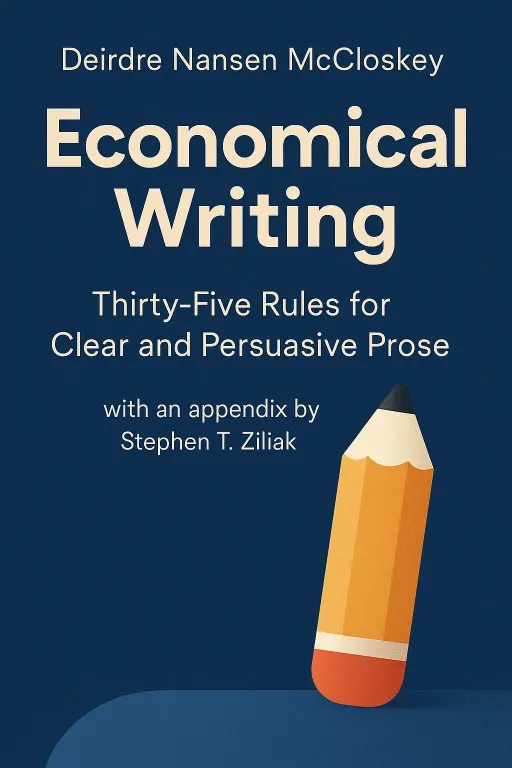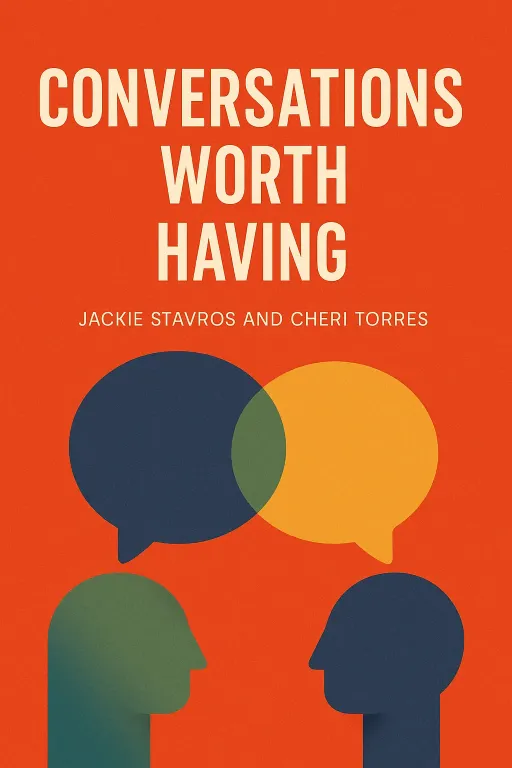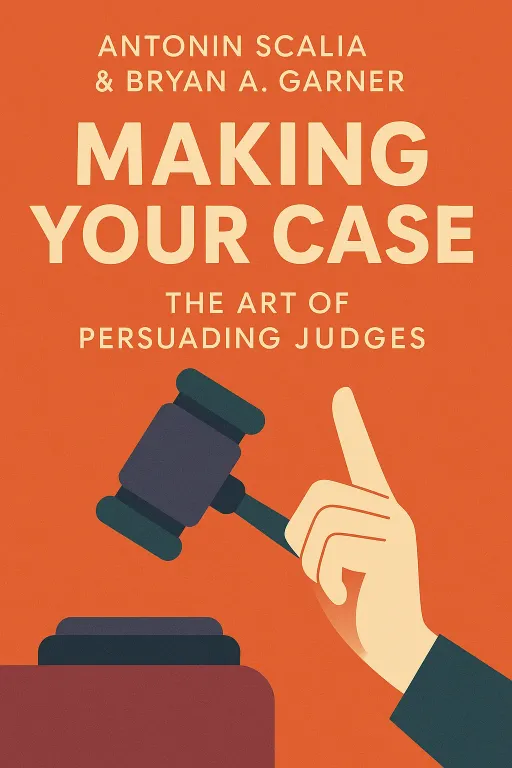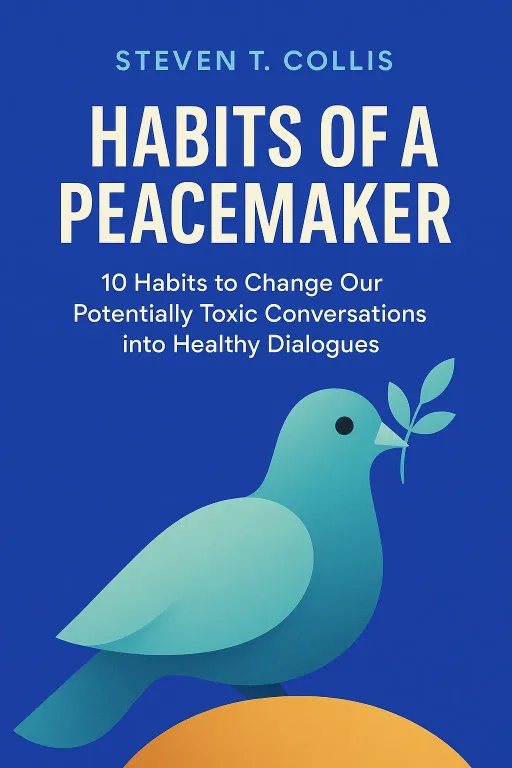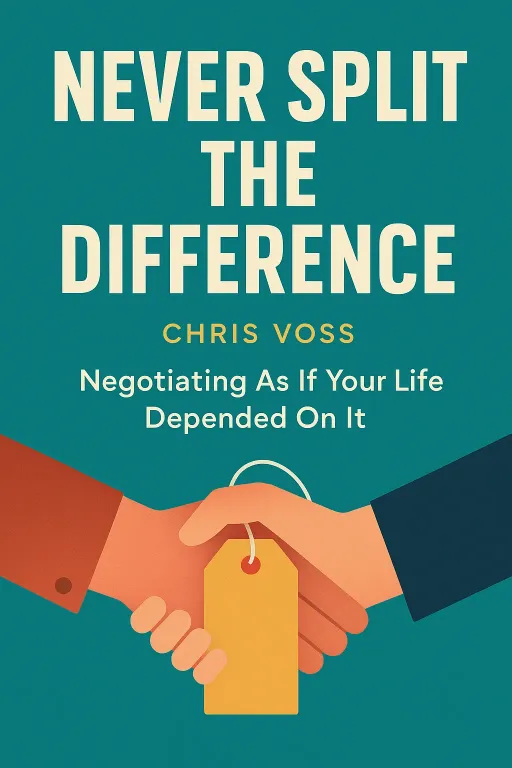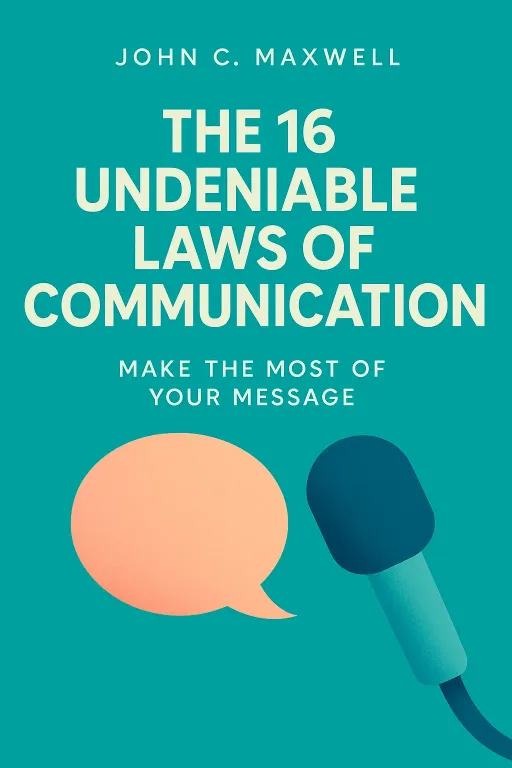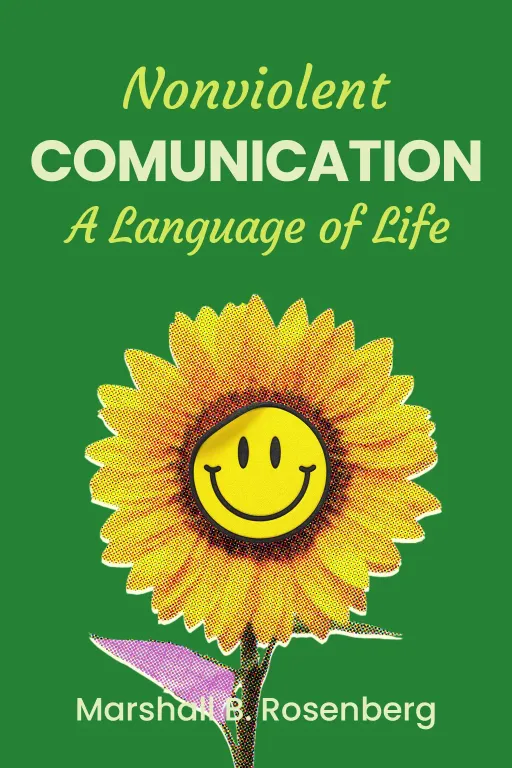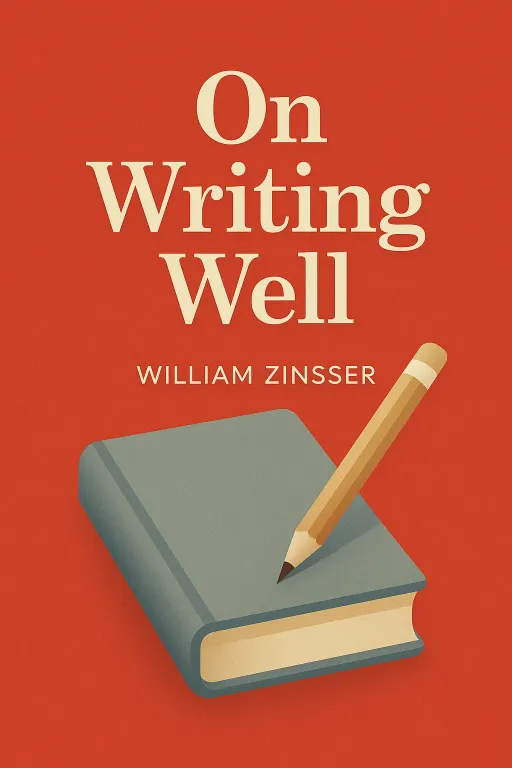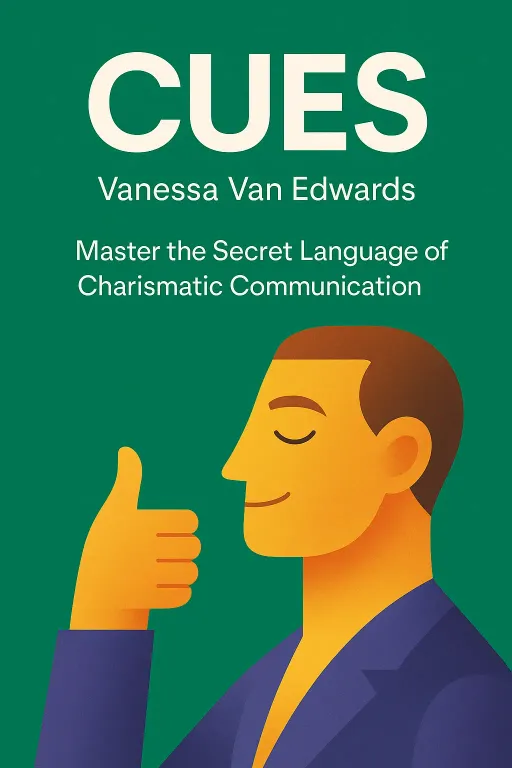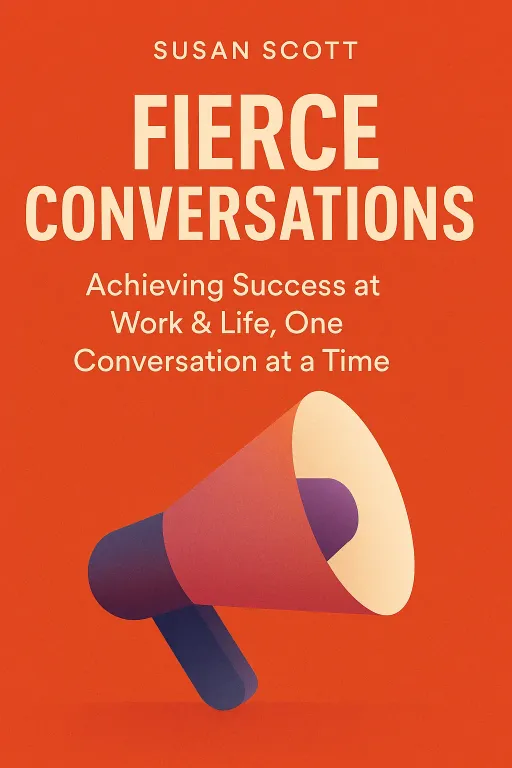
The Danger of Being Nice
10 minAchieving Success at Work & Life, One Conversation at a Time
Golden Hook & Introduction
SECTION
Michelle: The most polite conversation you have this week might also be the most destructive. We’re taught to be nice, to not rock the boat. But what if that 'niceness' is the very thing slowly sinking your career, your relationships, and your company? Mark: Whoa, that's a bold start. You're saying being polite is a problem? My whole Canadian upbringing is shaking right now. We're trained from birth to avoid rocking the boat. Michelle: And that very paradox is at the heart of a book that’s been a quiet giant in leadership circles for two decades: Fierce Conversations by Susan Scott. Mark: Susan Scott... I've heard the name. What's her story? Is she some kind of corporate brawler who just yells at people to get things done? The title "Fierce" definitely suggests that. Michelle: It's a great question, because the title is so misleading. She's actually a leadership expert who spent over 10,000 hours coaching CEOs and executives. And what she discovered in all those hours was that the biggest corporate and personal failures weren't caused by big, dramatic fights. They were caused by a terminal case of 'niceness'—the thousands of unspoken truths that pile up until something, or someone, finally breaks. Mark: A terminal case of niceness. I love that phrase. It sounds so harmless, but you're framing it like a disease. So what's the alternative to this terminal niceness? What does she propose?
The Reality Gap: Confronting the 'Ground Truth'
SECTION
Michelle: She proposes we master the courage to interrogate reality. That’s her first, and most important, principle. It’s all about closing the gap between what she calls the 'Official Truth' and the 'Ground Truth'. Mark: Okay, you have to break those terms down for me. Official Truth versus Ground Truth. What's the difference? Michelle: The Official Truth is the sanitized, politically correct version of reality. It's what's said in the press release, in the big team meeting, or at the family dinner table. It’s the "Everything is fine, we're on track" message. The Ground Truth is what everyone is actually thinking and whispering about around the water cooler or in the car on the way home. It's the reality that people know in their bones but are too afraid to say out loud. Mark: I can see that. The Official Truth is the company talking points. The Ground Truth is the frantic text messages between coworkers after the meeting. Michelle: Precisely. And Scott argues that the distance between those two truths is a direct measure of an organization's, or a relationship's, health. The wider the gap, the sicker the system. She tells this incredible story that I think perfectly illustrates the cost of that gap. It's about a meeting where no one spoke up. Mark: Oh, I've been in that meeting. I think I'm the chairman of the board of that meeting. Tell me the story. Michelle: Picture a corporate boardroom. A new, high-stakes strategy is being presented by the leadership team. At the end, the leader, full of enthusiasm, asks, "So, what does everyone think? Any thoughts or concerns?" And then... silence. Complete, deafening silence. You can hear the air conditioning hum. People are staring at their notepads, avoiding eye contact. Mark: I'm getting anxiety just hearing this. Michelle: Inside their heads, though, it's a different story. The marketing manager is thinking, "This will alienate our core customers." The lead engineer is thinking, "The timeline for this is a fantasy. We can't build it." The finance person is thinking, "The budget for this is based on assumptions that are just plain wrong." The Ground Truth is screaming that the plan is flawed. But the Official Truth in that room is silence, which is interpreted as agreement. Mark: And what happens? Michelle: The meeting concludes. The leader, hearing no objections, feels validated and plows ahead with the flawed strategy. Months later, the project fails spectacularly. It costs the company millions, damages its reputation, and morale plummets. And the worst part? Afterward, everyone says, "I knew this was going to happen." Mark: That is so painfully relatable. It’s the corporate version of watching a car crash in slow motion when you have the power to hit the brakes, but you don't. Why are we so afraid to speak up in those moments? Is it just the fear of getting fired? Michelle: That's part of it, but Scott digs deeper. She says it's a fear of conflict, a fear of being the lone dissenting voice, a fear of damaging relationships. We tell ourselves a story that staying silent is the safe option. But her whole point is that this is an illusion. The careful, polite, silent conversation is the one that's actually a failed conversation. The real danger isn't the one-time conflict of speaking up; it's the slow, corrosive decay that comes from letting the Ground Truth fester in the dark. Mark: Okay, but there has to be a time and a place, right? You can't just run around blurting out every critical thought you have. That sounds like a recipe for being the most annoying, and soon-to-be-unemployed, person in the office. How do you do it without just being a jerk?
The Anatomy of a 'Fierce' Conversation
SECTION
Michelle: And that's the perfect question, because it gets to the heart of what a 'fierce' conversation actually is. It’s not about blurting things out or being aggressive. That's the biggest misconception about her work. The word 'fierce' isn't about cruelty; it's about reality. She defines it as a conversation where "we come out from behind ourselves into the conversation and make it real." Mark: Make it real. That’s a bit abstract. What does that look like in practice? Michelle: It means being authentic and present, but also taking responsibility for what she calls your "Emotional Wake." Mark: Emotional Wake. I like that. It’s like the wake from a boat. You can either leave a smooth, calm path behind you or a chaotic, choppy mess that swamps everyone else. Michelle: That's a perfect analogy. Every single thing you say, or don't say, leaves a wake. A fierce conversation is about delivering the message clearly, but without a "load." The load is all the extra baggage we attach: the blame, the sarcasm, the exaggeration, the personal attacks. The goal is to have the conversation, not the fight. Mark: So you can be direct and honest without leaving a destructive wake. Michelle: Exactly. And sometimes, the most destructive wake is left by the conversations we don't have. The book has this heartbreaking story about a couple, John and Mary. For years, they had what Scott would call 'unreal' conversations. They were polite, they were careful, they never fought. John never told Mary how stressed he was at work because he didn't want to worry her. Mary never told John how lonely and neglected she felt because she didn't want to seem needy. Mark: They were trying to protect each other, and the relationship. Michelle: On the surface, yes. They avoided leaving a messy emotional wake in any single conversation. But the cumulative effect of all that silence, all that politeness, was a massive, invisible wake of resentment and disconnection that built up over years. The Official Truth was "We're a happy couple, we never argue." The Ground Truth was that they were complete strangers. And eventually, the relationship just sank under the weight of everything left unsaid. They got divorced. Mark: Wow. So the 'nice' conversations were actually the ones that killed the marriage. That's a powerful idea. It flips the script on what we think of as good communication. Michelle: It really does. It suggests that true kindness isn't avoiding the tough topics; it's having the courage to navigate them together, even if it's uncomfortable in the moment. Mark: Okay, so be real, mind your wake... but these conversations are still terrifying. The moment you start to interrogate reality, the tension in the room skyrockets. How do you handle that? What's the tool for managing the actual, in-the-moment fear? Michelle: This is my favorite principle in the whole book, because it's so counterintuitive. Principle 7: Let Silence do the Heavy Lifting. Mark: Let silence do the heavy lifting? What does that even mean? Silence is the awkward part we're all trying to fill. Michelle: We think it is. But Scott reframes silence as a powerful tool. When a conversation gets tense, our instinct is to talk faster, to fill the space, to defend our position. She says to do the opposite. Pause. Let there be a few seconds of silence. That silence isn't a void; it's an opportunity. It gives you a moment to think instead of just reacting. It gives the other person a chance to process what you've said. It lowers the emotional temperature of the room. Mark: Huh. So silence isn't a failure of the conversation, it's a feature. Michelle: It's the most important feature. It allows the Ground Truth to emerge. In that space, people can move past their initial defensive reactions and get to the core of the issue. It’s in the silence that we often find the clarity we were looking for. It's where the real learning happens.
Synthesis & Takeaways
SECTION
Mark: You know, as you're talking, the big idea that's clicking for me is that the conversation is the relationship. That's a quote from the book, isn't it? Michelle: It is. It’s the central thesis. Mark: And it's so true. We think of relationships as this abstract thing, but they're not. They are built, maintained, or destroyed one conversation at a time. Every time we choose the easy 'Official Truth' over the difficult 'Ground Truth,' we're making a tiny withdrawal from that relationship's bank account. Do it enough times, and you eventually go bankrupt. Michelle: That is the perfect summary. The cost of 'nice' is bankruptcy in our emotional capital. And what's so great about Scott's work, which has been so influential in the business world and beyond, is that it's not just a philosophical idea. It's intensely practical. Mark: So what's the first step? For someone listening who is thinking about that one conversation they've been dreading for months. Michelle: Scott gives a simple, powerful assignment. Identify one conversation you've been avoiding. Just one. The one that makes your stomach clench when you think about it. And then, before you even think about having it, just prepare for it. Take out a piece of paper and write down the answers to a few questions. Mark: What are the questions? Michelle: One: What is the issue, in 1-2 sentences? Two: Why is this significant? What's at stake? Three: What is my ideal outcome? What do I hope to achieve? Four: What have I done to contribute to this problem? And five: What is the help I want from this person? Mark: Wow. Just doing that alone seems like it would change everything. You're not walking in angry or afraid; you're walking in with clarity. Michelle: You're walking in prepared to have a real conversation, not just an emotional reaction. And that preparation is often half the battle. It transforms the fear into focus. Mark: That leaves me with a question for everyone listening. What's the one 'fierce conversation' that, if you had it this week, could change everything for you? Michelle: A powerful question to end on. Mark: This has been incredibly insightful. It really challenges the way I think about communication. Michelle: This is Aibrary, signing off.
